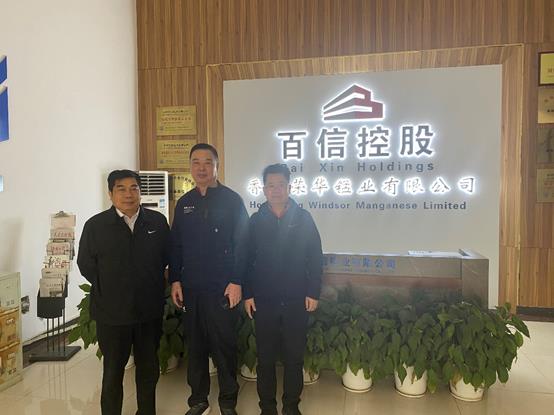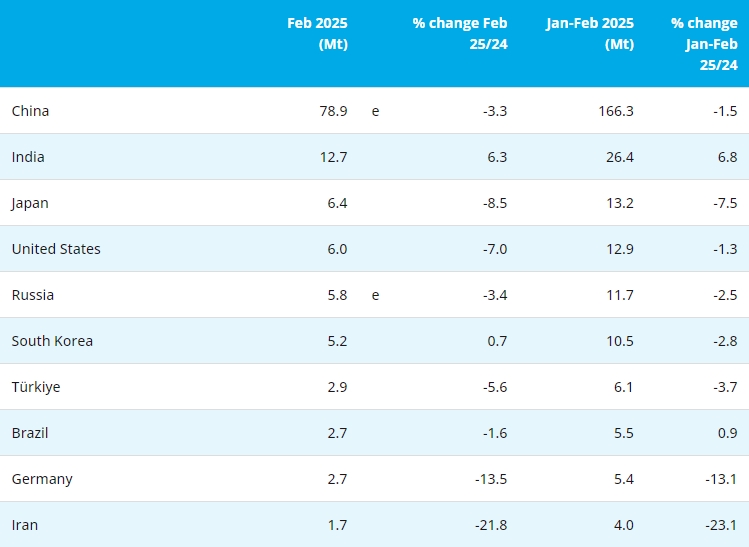[www.ferro-alloys.com] The advantages that steel offers to the construction sector have long been recognised by designers and specifiers.
This is demonstrated by steel’s market share which, over the past 15 years, has consistently been approximately 90 percent for single-storey industrial buildings and 70 percent for multi-storey non-residential buildings.
The versatility of steel gives architects the freedom to achieve their most ambitious visions.
Structural steel is an essential component of most stadiums, shopping centres and commercial developments; steel cladding systems adorn iconic, landmark structures worldwide.
Steel is one of the most sustainable construction materials. Its strength and durability, coupled with its ability to be recycled, again and again, without losing quality, makes it ideal for long term sustenance of development.
Building owners value the flexibility of steel buildings, and the value benefits they provide, such as the light, open, airy spaces that can be created, making it ideal for modernisation.
Even without these benefits, steel is often the first choice on the basis of cost alone.
President Lungu’s declaration of Kafue as an iron and steel economic zone is aimed at creating a platform for Zambia to achieve economic development by attracting significant domestic and foreign direct investment (FDI) through a strengthened policy and legislative environment.
Going by the PF manifesto and campaign promises diversification from the copper-driven economy to a multifaceted slant is expected to turn around the fortunes of this country in the short and medium term.
The sub-sector has the potential to trigger economic growth through employment creation, agriculture and birth of small and medium enterprises to service auxiliary demands.
The revised PF manifesto stresses the need for Zambia to inaugurate industrialisation as a way of boosting the diversification programme.
The head of State notes that to encourage home-grown industries to thrive like Universal Mining and Chemical Industries under whose umbrella Kafue Steel falls, it is imperative for Government to provide policies that spur an economic drive to benefit local people.
Kafue Steel through its parent company has invested over US$300 million.
Government deserves a pat on the back over its policy direction in supporting local industries.
With the current fast-growing construction industry, I expect to see local suppliers procure local steel as opposed to importing from South Africa.
It is interesting to note that South Africa imported steel from Kafue to construct a rail line from Oliver Tambo International Airport into the main city.
The Mongu-Kalabo was constructed using locally sourced steel.
Following this announcement, it is now incumbent upon relevant departments to actualise this pronouncement.
Kafue town is strategically located and, therefore it should not have been neglected to remain moribund for close to three decades following the collapse of the textile industry and the fertiliser plant.
The business community should also be ready to take advantage of transformation of the district into a vibrant industrial commercial and tourism hub.
These enterprises have provided more than 5,600 local jobs which are expected to increase as more zone enterprises are located in the MFEZ.
Furthermore, the infrastructure construction is progressing well and already a total investment in infrastructure development has exceeded US$100 million.
In the next four years, this MFEZ is poised to accommodate 50 to 60 zone enterprises with an output volume exceeding US$1.5 billion of which more than US$600 million will be exported while employing more than 6,000 locals.
In North-Western Province, the MFEZ is being developed by Lumwana Property Development Company will include: manufacture of explosives, agro processing, horticulture, fisheries, and hotel accommodation, among others.
The developers of this MFEZ have prepared a master plan and plans to invest US$1.2 billion for development of the MFEZ whilst creating 13,000 jobs.
The creation of special economic zones is motivated by the desire to attract foreign direct investment.
The benefits a company gains by being in a special economic zone include producing and trading goods at a lower price, thereby becoming globally competitive.
Barely three months ago, President Lungu directed the Zambia Public Procurement Authority to ensure that all infrastructural projects, including the airport expansion and electricity power station projects, are supplied with locally produced products.
Kafue Steel, which produces about 120,000 metric tonnes of steel per annum, is expected to upgrade to 240,000 metric tonnes per annum once the plant begins to use iron ore later this year.
Such production levels will certainly meet the high demands that have been generated over the past four years across the country.
Kafue Steel has invested K70 billion in an iron ore mine in Shibuyunji district. The project is one of the major diversification initiatives by the private sector.
This policy directive will certainly support locally produced goods such as steel bars, mill balls, angle bars, deformed bars and wire mesh. **Article from Internet for reference only
- [Editor:tianyawei]



 Save
Save Print
Print Daily News
Daily News Research
Research Magazine
Magazine Company Database
Company Database Customized Database
Customized Database Conferences
Conferences Advertisement
Advertisement Trade
Trade





 Online inquiry
Online inquiry Contact
Contact

Tell Us What You Think